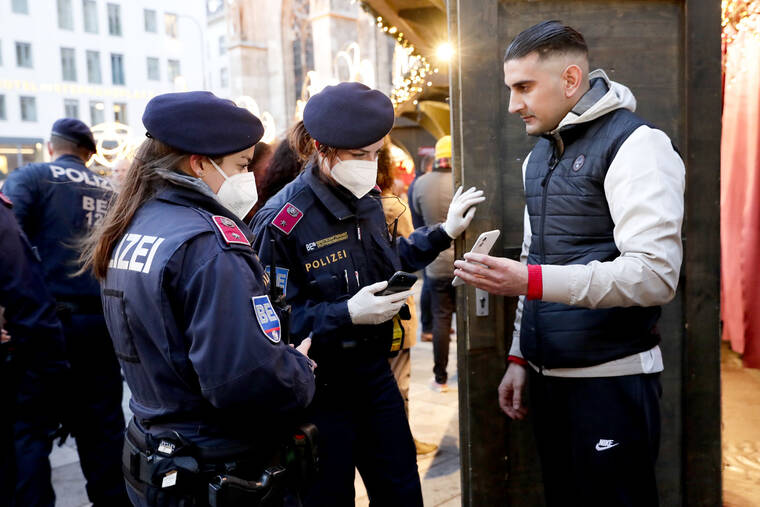VIENNA — Austria announced a national lockdown and a plan to mandate vaccinations as coronavirus infections hit a record high Friday, forcing the government to walk back promises that strict shutdowns were a thing of the past.
VIENNA — Austria announced a national lockdown and a plan to mandate vaccinations as coronavirus infections hit a record high Friday, forcing the government to walk back promises that strict shutdowns were a thing of the past.
While the scope of the proposed mandate was unclear, a blanket requirement would be a first for a Western country. Chancellor Alexander Schallenberg said those who didn’t comply would likely be fined but gave no other details.
The moves come as vaccinations in Austria have plateaued at one of the lowest rates in Western Europe, and as hospitals in heavily hit states have warned that their intensive care units are reaching capacity. Average daily deaths have tripled in recent weeks — though the number of fatalities reported over the past week remains well below the high of last winter and 13 U.S. states are already seeing more deaths per 100,000 people.
Earlier this month, Schallenberg indicated a full lockdown would not be needed and instead imposed the restrictions only on those not vaccinated.
The lockdown will start Monday and initially will last for 10 days, when it will be reevaluated, Schallenberg said. Starting Feb. 1, the country will also make vaccinations mandatory — though the chancellor gave few details about what that meant or how it would work.
“Increasing the vaccination rate — and I think we’re all in agreement on this — is our only way to break out of this vicious cycle of viral waves and lockdown discussions for good,” Schallenberg said. “We don’t want a fifth wave, we don’t want a sixth and seventh wave.”
Austria is among several Western European countries where infections are rising rapidly and where there are concerns that vaccination rates, while relatively high, are insufficient to hold off a winter surge at hospitals.
Thanks largely to inoculation, hospitals in the region are not under the same pressure they were earlier in the pandemic, but many are still straining to handle rising numbers of COVID-19 patients while also attempting to clear backlogs with exhausted or sick staff.




